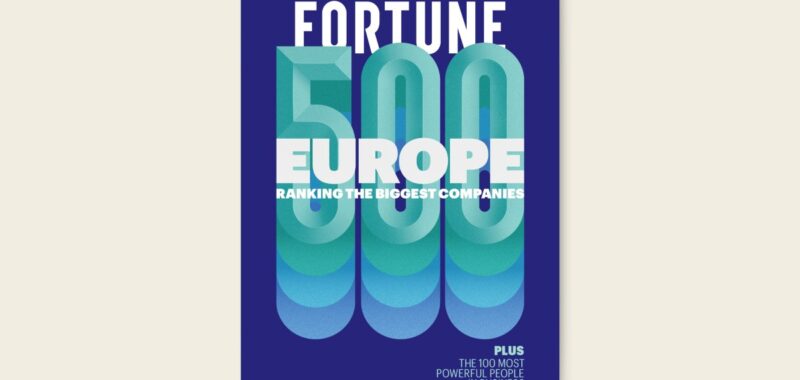
This issue unveils the second edition of our Fortune 500 Europe list of the biggest companies in the region, ranked by revenue.
Ahead of publication, I took to the streets of the Square Mile, the heart of London’s financial district, asking people to predict who would top this year’s list. Their responses were telling: Most couldn’t suggest a single European company, only American brands.
So, what does the Fortune 500 Europe look like today? It is dominated by automotive, energy, and finance companies. Notably, our research—led by Fortune’s Grethe Schepers—found our 2024 list looks remarkably similar to the American Fortune 500 almost 20 years ago.
Why does this matter? It’s the long-term outlook: Many of the companies topping the list were built for yesterday’s economy, and today they face an existential crisis as the world adapts to climate change and competition from China.
None more so than Volkswagen, which reached No. 1 on this year’s list. Germany was once the economic engine of Europe, as Ryan Hogg writes, but a shifting world order has pulled the carpet out from underneath its economy, including VW.
Many of the companies topping the list were built for yesterday’s economy, and today they face an existential crisis as the world adapts to climate change and competition from China.
The only clear path forward for Europe is to innovate—or at least embrace innovation. We identified just 15 tech companies this year, including Accenture (No. 48), SAP (No. 113), and ASML (No. 137), on the list. By contrast, America has three times as many Fortune 500 tech companies, which account for a quarter of all profits on that ranking.
Scale is the next challenge. The EU is the world’s largest single market, but as anyone who’s spent time here will know, it’s the mishmash of local, national, and EU-wide regulations that stifle growth—one of the many reasons Europe has never managed to build a tech giant to rival Google.
The biggest challenge Google is facing in Europe?
“The mission of building AI responsibly to help humanity,” @GoogleEurope President @MattBrittin told Fortune’s @alexwoodmorton at #FortuneCEOForum.#Fortune500Europe | https://t.co/nXDiKwbPvf pic.twitter.com/fIqG5tAyug
— FORTUNE (@FortuneMagazine) November 7, 2024
“Put simply, developing, launching, or just using technology is harder in Europe than it is anywhere else in the world,” says Matt Brittin, president of Google EMEA, who has seen firsthand the problems holding Europe back. Brittin, who sat down for an interview ahead of his departure from Google, cohosted the inaugural Fortune CEO Forum in London. He noted that over the past five years, more than 100 new laws have been passed that govern Europe’s digital economy.
Mark Read CBE, CEO of advertising giant WPP, works with over 300 companies on the Fortune Global 500. Like Brittin, he’s upbeat but acknowledges we’re in a perpetual game of catch-up with the U.S. “Look at AI, where U.S. companies either led initially or scaled rapidly,” he said during the launch of this year’s list. One of the strengths of European business is its international nature. Prarthana Prakash found the secret sauce to landing the top CEO job in Europe is experience leading an international division.
With an incoming Trump government in 2025, Europe once again stands at a crossroads. Given the threat of trade barriers and American isolationism, Europe must take a different path. It must lead the charge for liberal, free-market capitalism that, as history has shown us time and time again, benefits the many, not the few.
Alex Wood Morton
Executive Editor, Europe, Fortune
@alexwoodmorton
This article appears in the December 2024/January 2025 issue of Fortune with the headline: “Make Europe Great Again”.

